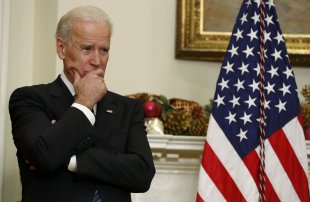(Reuters) – U.S. health regulators have approved a new Johnson & Johnson drug for patients with tuberculosis who do not respond to other treatments, the company said.
The drug is the first in 40 years to tackle the disease using a new mechanism of action, according to J&J. The drug blocks an energy-producing enzyme that tuberculosis bacteria need to survive.
The U.S. Food and Drug Administration approved the drug, chemically known as bedaquiline and to be marketed as Sirturo, on Monday following a positive review by an advisory panel last month.
Tuberculosis is an air-spread infection that usually attacks the lungs but it can also affect the brain, the spine and the kidneys.
In 2011, nearly 9 million people around the world became sick with TB, according to the Centers for Disease Control and Prevention, and there were 1.4 million TB-related deaths. The disease requires six to nine months of drug treatment.
TB is more prevalent now than at any time in history, FDA Commissioner Margaret Hamburg wrote in a blog on the FDA website. This drug will help treat and cure patients who are putting themselves and others at serious health risk, she said.
The drug itself has significant potential risks, she wrote, and will carry a warning about an increased rate of death observed in patients who received it.
Her comments followed those of the FDA advisers who found the drug to be effective, though they noted that more deaths were seen in the group of patients who took bedaquiline in combination with standard treatments than in the group that took standard drugs alone.
Doctors Without Borders said that the drug was a “potential game changer” against drug-resistant forms of the disease and an important milestone in fighting TB.
Multidrug-resistant tuberculosis is caused by strains of the bacterium that have become resistant to at least isoniazid and rifampin, the two most potent drugs for TB.
Support has not been unanimous. Consumer advocacy group Public Citizen earlier this month said it had written to the FDA because of the risks of death asking it not to approve of the drug, which received a fast approval.
DETAILS FROM TRIAL
Chrispin Kambili, medical affairs leader for bedaquiline at J&J’s Janssen Therapeutics unit, said in a recent interview that the company is studying the difference in death rates but has so far seen no common pattern.
Almost every death was due to a different cause, including a motor vehicle accident. What was unusual, he said, was the low rate of death in the placebo group.
Advisers to the FDA expressed concern that a greater number of patients had elevated liver enzymes, a potential sign of liver toxicity, and elongated QT levels, an electrical irregularity in the heart that can cause sudden death.
But Kambili said none of the patients died due to serious QT prolongation and there was no unifying findings in the data.
Kambili said J&J’s drug is designed for a relatively small portion of patients – some 650,000 – who do not respond to existing therapies.
And while investment analysts at Cowen and Co have forecast peak annual sales of the product at a relatively modest $ 300 million, the drug is important from a public health standpoint, Kambili said.
J&J shares were 0.1 percent higher to $ 69.56 in late morning trading on the New York Stock Exchange.
(Additional reporting by Ransdell Pierson and Caroline Humer; Editing by John Wallace, Jeffrey Benkoe and Tim Dobbyn)
Medications/Drugs News Headlines – Yahoo! News
Title Post: U.S. approves J&J drug-resistant tuberculosis treatment
Rating:
100%
based on 99998 ratings.
5 user reviews.
Author:
Thanks for visiting the blog, If any criticism and suggestions please leave a comment











